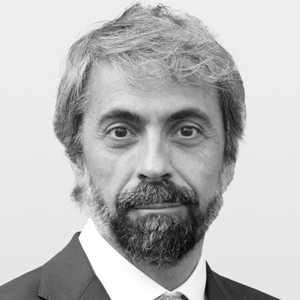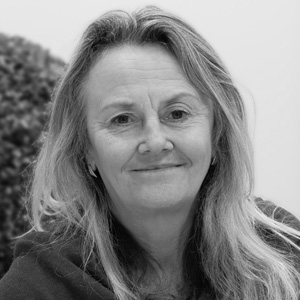Governance
IFOM Steering Committee
The Steering Committee is composed of the President, Vice President, Scientific Director and General Manager of the Foundation, joined, with the right to vote, by the President of the founding AIRC Foundation and two co-opted members chosen from personalities of high professionalism in the scientific, economic and social fields. The co-opted members remain in office until the approval of the final financial statements for the fourth fiscal year following their appointment and may be renewed for two more consecutive terms. The Steering Committee is assigned the powers of ordinary and extraordinary administration of the Foundation whose scientific and operational autonomy it guarantees.
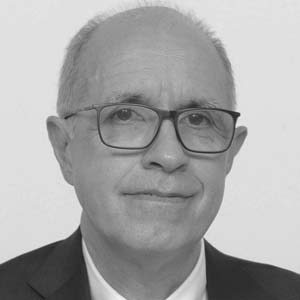
Giovanni Azzone
Giovanni Azzone
Born in 1962 in Milan, since 1994 he has been Professor of Business and Strategic Decisions at the Politecnico, of which he was Rector from December 2010 to December 2016, promoting in his tenure a strong push towards internationalization and social responsibility of the University. Author of 13 monographs and more than 80 articles in international journals, Giovanni Azzone conducts research in the field of organizational analysis, management control and reporting in industrial companies and Public Administrations, with particular reference to aspects related to digitalization and sustainability. In addition to his research activities, he has lent his 30 years of experience in the service of the public sector, the private sector and the nonprofit sector, holding various apex institutional positions and consulting activities at the national and international levels. In the public sector, he has worked for, among others, the Ministry of the Treasury, Budget and Economic Planning, the Ministry of Economy and Finance, the Ministry of Infrastructure and Transport, the Presidency of the Council of Ministers, and the Ministry of Education, University and Research, where from 2004 to 2010 he was Vice President of the National Committee for the Evaluation of the University System. Since May 2023 Professor Giovanni Azzone has also been President of Fondazione Cariplo, while since 2021 he has served as Ombudsman at the Italian Institute of Technology and is a member of the IFOM Steering Council. Until April 2022 he has been Chairman of Arexpo SpA since 2016, Chairman of Spezia & Carrara Cruise Terminal since 2020, and a member of the Board of Directors of AIRC Foundation since 2021, and from 2016 to 2023 he was a member of the Board of Directors of Poste Italiane SpA.
Chairman
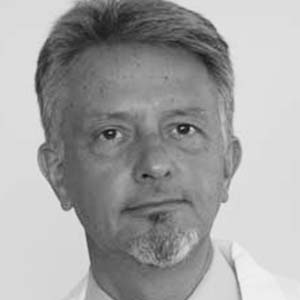
Alberto Bardelli
Alberto Bardelli
Born in Turin in 1967, Alberto Bardelli graduated in Biological Sciences in 1991 at the University of the same city and then took a PhD in Biochemistry and Molecular Biology at University College London in the UK. From 1999 to 2004, he specialised in cancer genomics with luminary Bert Vogelstein at the Johns Hopkins University School of Medicine at the Howard Hughes Medical Institute in Baltimore. In 2004, he returned to Italy as director of a research unit dedicated to the study of cancer genomes at the Candiolo Tumour Institute and the Department of Oncology at the University of Turin, where he has been full professor of Histology since 2016. The work of his research group is focused on the development of precision medicine for cancer patients. His discoveries have defined a new diagnostic methodology, called liquid biopsy, which by means of a blood sample, using circulating tumour DNA, makes it possible to monitor the response to therapies and the effectiveness of surgery in colorectal cancer patients. These discoveries are at the basis of international clinical trials such as PEGASUS and CHRONOS. His findings have been published in over 200 scientific articles - including 100 as coordinator - in international journals such as Nature, Science, Cancer Cell, NatureMedicine, JAMA and Lancet Oncology. His H index, a measure of the citations received by his articles, is 98 and, as of 2014, he has been listed by Web of Science as one of the world's most cited researchers. He has been a member of national and international scientific associations such as the European Academy of Cancer Sciences since 2015 and the European Molecular Biology Organisation (EMBO) since 2017, was President of the European Association for Cancer Research (EACR) from 2018 to 2020, and is a member of the AIRC Foundation Scientific Committee for Cancer Research.
Member
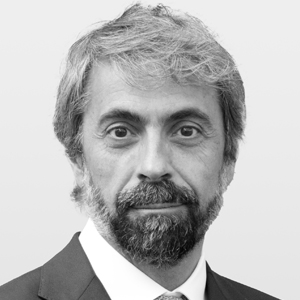
Enrico De Santis
Enrico De Santis
Born in Verona in 1971, he is an experienced Executive director with a demonstrated working history in primary multinational Group in Utilities and Financial Services sectors, acting as Board Member and Audit Chairman in several Italian, European and non-European companies.
With a managerial engineering graduation at Politecnico of Milan and a consulting background, he is skilled in Strategy & Planning, Finance and control, Organization, HR management, Restructuring and set-up of operations.
He drives organizations to design and execute the vision to consistently exceed the long term targets, always promoting innovation and building talented team and keeping people highly motivated along the journey, creating consensus across different functions and cultures.
Member
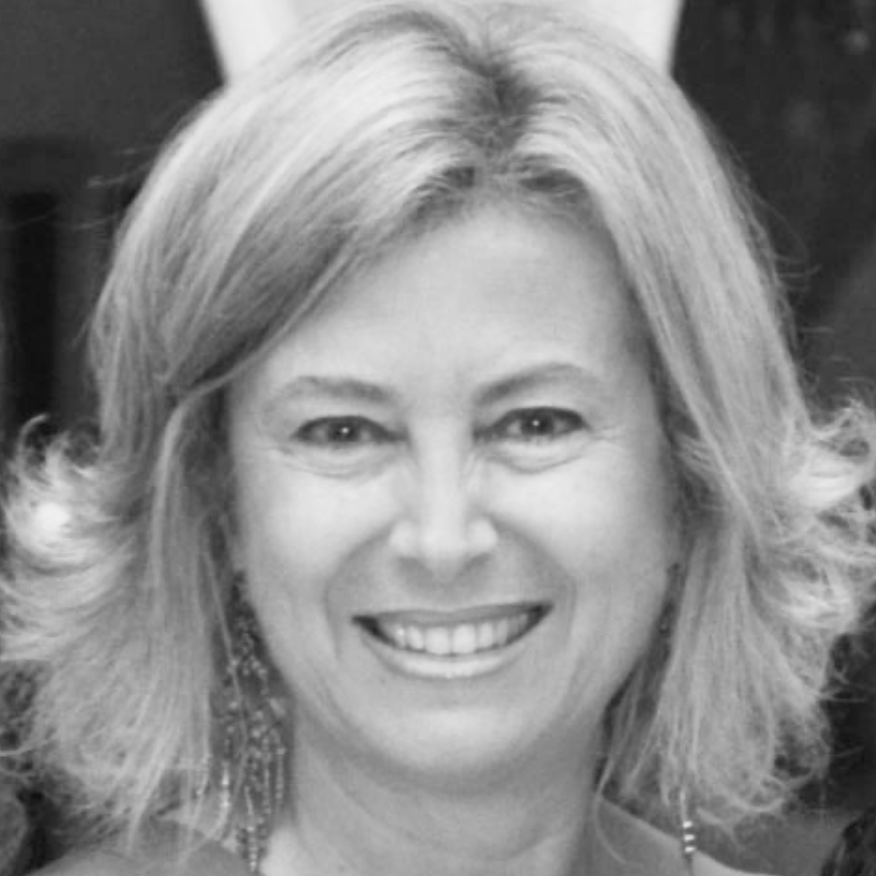
Irene Bozzoni
Irene Bozzoni
She graduated in Biology at the University “Sapienza” of Rome, where she then obtained a specialization in General Pathology. She carried out her post-doc at the Institute of Molecular Biology of the University of Zurich. The scientific activity developed in Rome at the C.N.R. and later at the “Sapienza” University, first as Associate Professor of Molecular Biology (1986-92) and subsequently as Full Professor (1992-present). Since 2018 she is also Senior Researcher at the Italian Institute of Technology (IIT).
She has spent several research periods at foreign institutions such as: EMBL (Germany), NIH (USA), University of Brandeis (USA), University of Boulder (USA).
At the "Sapienza" University she has held various positions including: Director of the School for Advanced Studies, President of the Master's Degree in Genetics and Molecular Biology and Coordinator of the PhD in Genetics and Molecular Biology. She was also a member of the Sapienza Commission for PhD, member of the "Committee for Research and Technology Innovation" and President of the Evaluation Unit of the Faculty of Sciences.
Among the appointments external to the University, she is currently member, by government designation, of the “Selection committee for the presidents and members of the boards of directors of Italian Research Institutions”. As part of this activity, she participated in the 2019 selection of the President of the CNR (Italian National Research Council). Since 2020 she is member of the “Scientific Advisory Committee” of the European Molecular Biology Laboratory (EMBL) and since 2018 she is member of the “Management Committee” of the Human Technopole and of the “Advisory Committee” of the Armenise-Harvard Foundation.
In the past she has been member of the Board of the “National Museum of Science and Technology, Leonardo da Vinci" (Milan), of the committee “Programma per Giovani Ricercatori, Rita Levi-Montalcini” of MUR, of the Scientific Committee of the “Enciclopedia Treccani” and of the “Committee of Experts for the Research Policy” (CEPR), consultant of the Italian Ministry of University and Research.
She is member of various scientific societies and academies including the European Molecular Biology Organization and the "Academia Europaea". She has received several awards including: the "Giovanna Jucci" award from the Accademia dei Lincei in 2003, the "Tartufari" award from the Accademia dei Lincei in 2006, and the Sapienza Ricerca Award in 2010. In 2008 she was invited to hold the "Lectio magistralis" for the inauguration of the academic year of the La Sapienza University of Rome.
She is the author of more than 160 publications and 8 patents, three of which were licensed to the industry. She was awarded of two ERC grants: an "Advanced Grant" in 2014 and a "Synergy Grant" in 2019. Over the years she has also coordinated several research projects funded by: European Union, Human Frontier Science Project (HFSP), AIRC, Telethon , Arisla, Association Francaise contre le Myopathies (AFM) and Italian Institute of Technology (IIT).
Member
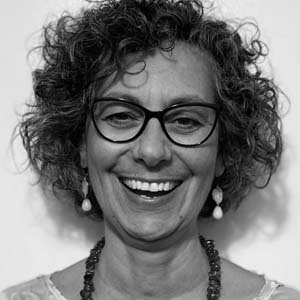
Alessandra Della Porta
Alessandra della Porta
Born in Milan in 1963 and graduated in law at the University of Milan, she has been a lawyer since 1992 and a member of the Court of Cassation since 2007. A civil lawyer with a specialisation in family law, she has held and still holds positions in corporate and non-profit contexts. He currently holds the position of Member of the Steering Committee of Fondazione Airc, Member of the Board of Directors of Saes Getters Spa and Member of the Board of Directors of Cogentech srl Società Benefit. From 1 April 2022, he will be Vice President of IFOM, the Institute of Molecular Oncology of the AIRC Foundation.
Member
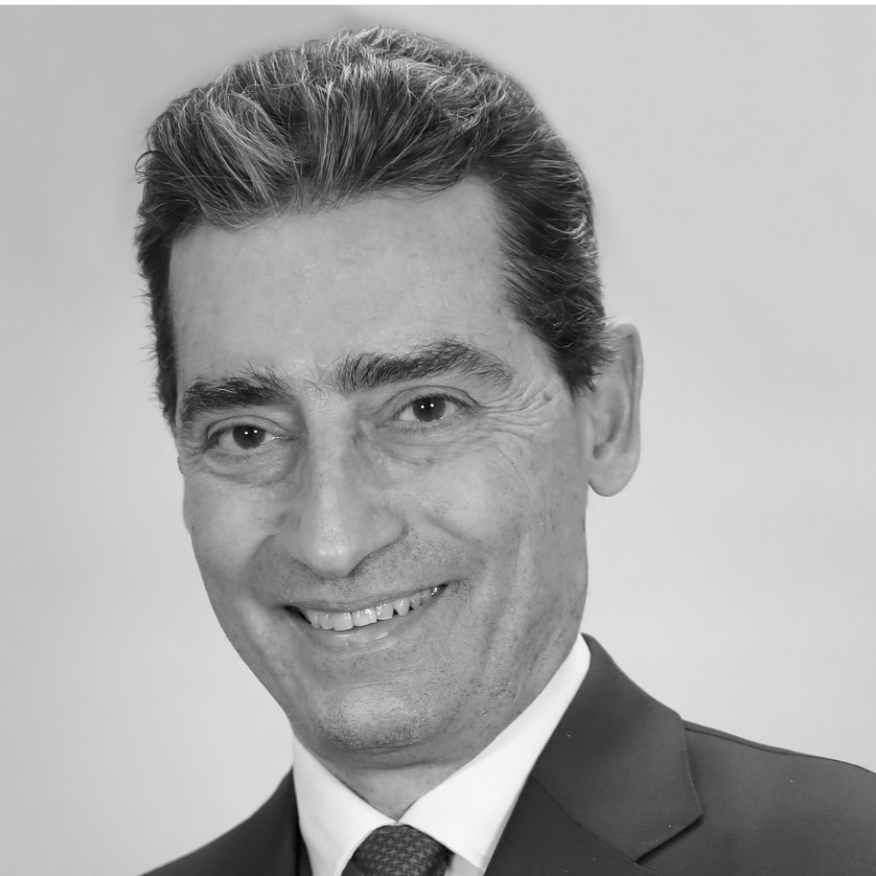
Andrea Sironi
Andrea Sironi
Andrea Sironi is President of Bocconi University in Milan, where he is also Professor of Economics of Financial Intermediaries and was Rector from 2012 to 2016. He has been Chairman of Assicurazioni Generali since May 2022. From 2014 to 2016 he was President of CEMS, the global alliance of management schools. From 2016 to 2022 he was Chairman of Borsa Italiana and from 2016 to 2020 member of the Board of Directors of London Stock Exchange Group. He has been an independent director of major industrial and financial listed companies and an advisor to leading national and international financial institutions. Since June 2021, he has been a member of the Scientific Committee (Supervisory Board) of the National Recovery and Resilience Plan established by Italian Minister of Universities and Research to support the implementation of measures under the purview of the MUR.
Member
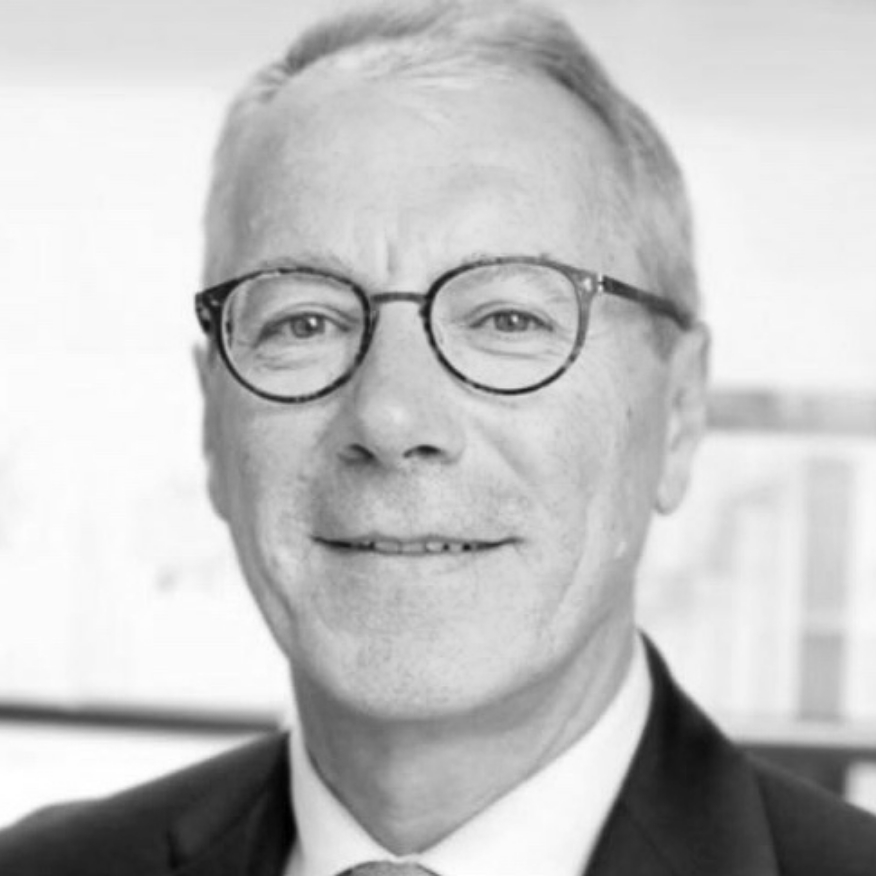
Gianvincenzo Zuccotti
Gianvincenzo Zuccotti
Gianvincenzo Zuccotti is Full Professor of Pediatrics at the Faculty of Medicine of the University of Milan and Director of the Department of Pediatrics at the V. Buzzi Children's Hospital. In addition, he is Dean of the Faculty of Medicine of the University of Milan and Vice Chancellor for Relations with Health Institutions. He has held and still holds numerous institutional positions, including member of the Single Commission for Dietetics and Nutrition of the Ministry of Health, the National Commission for Food Safety of the Ministry of Health and Agricultural, Food and Forestry Policies, and the Pediatric Working Group of the Italian Drug Agency. Professor Zuccotti has co-authored more than 600 papers, published by indexed journals with IF (h-index: 47). His research fields range from nutritional and metabolic dysfunction in children and adults, to the treatment and management of infectious diseases and the molecular basis of neurodegenerative diseases.
Member
The Chairman
The Chairman of IFOM is designated by the AIRC Foundation and remains in office until the approval of the final financial statements for the fourth fiscal year following his or her appointment, with the possibility of renewal for another two consecutive terms. The Chairman has the legal representation of the Foundation before third parties, convenes and chairs the Steering Committee, oversees the management as well as the organization of the Foundation, maintains relations with the Founder, and reports at least annually on the Foundation's activities. The Chairman also handles relations with Bodies, Institutions, Public and Private Enterprises and other bodies, including for the purpose of establishing relationships of collaboration and support for the Foundation's individual initiatives.
Giovanni Azzone
Chairman
Born in 1962 in Milan, since 1994 he has been Professor of Business and Strategic Decisions at the Politecnico, of which he was Rector from December 2010 to December 2016, promoting in his tenure a strong push towards internationalization and social responsibility of the University... read more
Giovanni Azzone - Chairman
Born in 1962 in Milan, since 1994 he has been Professor of Business and Strategic Decisions at the Politecnico, of which he was Rector from December 2010 to December 2016, promoting in his tenure a strong push towards internationalization and social responsibility of the University. Author of 13 monographs and more than 80 articles in international journals, Giovanni Azzone conducts research in the field of organizational analysis, management control and reporting in industrial companies and Public Administrations, with particular reference to aspects related to digitalization and sustainability. In addition to his research activities, he has lent his 30 years of experience in the service of the public sector, the private sector and the nonprofit sector, holding various apex institutional positions and consulting activities at the national and international levels. In the public sector, he has worked for, among others, the Ministry of the Treasury, Budget and Economic Planning, the Ministry of Economy and Finance, the Ministry of Infrastructure and Transport, the Presidency of the Council of Ministers, and the Ministry of Education, University and Research, where from 2004 to 2010 he was Vice President of the National Committee for the Evaluation of the University System. Since May 2023 Professor Giovanni Azzone has also been President of Fondazione Cariplo, while since 2021 he has served as Ombudsman at the Italian Institute of Technology and is a member of the IFOM Steering Council. Until April 2022 he has been Chairman of Arexpo SpA since 2016, Chairman of Spezia & Carrara Cruise Terminal since 2020, and a member of the Board of Directors of AIRC Foundation since 2021, and from 2016 to 2023 he was a member of the Board of Directors of Poste Italiane SpA.
The Scientific Director
The Scientific Director of IFOM is appointed by the founder AIRC Foundation after consultation with the President, the Chairman of the International Scientific Committee and the outgoing Scientific Director and remains in office until the approval of the final balance sheet for the third financial year following his or her appointment and may be reappointed for two other consecutive terms. The Scientific Director is responsible for IFOM's scientific and research activities as well as for their implementation within the framework of the programs, the Foundation's development lines and the allocations approved by the Steering Committee and with respect to the powers assigned to him/her. The Scientific Director avails himself/herself of the collaboration of the International Scientific Committee.
Alberto Bardelli
Scientific Director
Born in Turin in 1967, Alberto Bardelli graduated in Biological Sciences in 1991 at the University of the same city and then took a PhD in Biochemistry and Molecular Biology at University College London in the UK. From 1999 to 2004, he specialised in cancer genomics with luminary Bert Vogelstein at the Johns Hopkins University School of Medicine at the Howard Hughes Medical Institute in Baltimore... read more
Alberto Bardelli - Scientific Director
Born in Turin in 1967, Alberto Bardelli graduated in Biological Sciences in 1991 at the University of the same city and then took a PhD in Biochemistry and Molecular Biology at University College London in the UK. From 1999 to 2004, he specialised in cancer genomics with luminary Bert Vogelstein at the Johns Hopkins University School of Medicine at the Howard Hughes Medical Institute in Baltimore. In 2004, he returned to Italy as director of a research unit dedicated to the study of cancer genomes at the Candiolo Tumour Institute and the Department of Oncology at the University of Turin, where he has been full professor of Histology since 2016. The work of his research group is focused on the development of precision medicine for cancer patients. His discoveries have defined a new diagnostic methodology, called liquid biopsy, which by means of a blood sample, using circulating tumour DNA, makes it possible to monitor the response to therapies and the effectiveness of surgery in colorectal cancer patients. These discoveries are at the basis of international clinical trials such as PEGASUS and CHRONOS. His findings have been published in over 200 scientific articles - including 100 as coordinator - in international journals such as Nature, Science, Cancer Cell, NatureMedicine, JAMA and Lancet Oncology. His H index, a measure of the citations received by his articles, is 98 and, as of 2014, he has been listed by Web of Science as one of the world's most cited researchers. He has been a member of national and international scientific associations such as the European Academy of Cancer Sciences since 2015 and the European Molecular Biology Organisation (EMBO) since 2017, was President of the European Association for Cancer Research (EACR) from 2018 to 2020, and is a member of the AIRC Foundation Scientific Committee for Cancer Research.
The General Director
Elected by the Steering Committee at the proposal of the founder AIRC Foundation, the General Director remains in office until the approval of the final financial statements for the fourth fiscal year following his or her appointment and may be reappointed for two other consecutive terms. The General Director is responsible for ensuring, within the constraint of economic, financial and patrimonial balance, the administrative, logistical and financial support of the Foundation's scientific activity, as defined in the scientific plan approved by the Steering Committee.
Enrico De Santis
General Director
Born in Verona in 1971, he is an experienced Executive director with a demonstrated working history in primary multinational Group in Utilities and Financial Services sectors, acting as Board Member and Audit Chairman in several Italian, European and non-European companies... read more
Enrico De Santis - General Director
Born in Verona in 1971, he is an experienced Executive director with a demonstrated working history in primary multinational Group in Utilities and Financial Services sectors, acting as Board Member and Audit Chairman in several Italian, European and non-European companies.
With a managerial engineering graduation at Politecnico of Milan and a consulting background, he is skilled in Strategy & Planning, Finance and control, Organization, HR management, Restructuring and set-up of operations.
He drives organizations to design and execute the vision to consistently exceed the long term targets, always promoting innovation and building talented team and keeping people highly motivated along the journey, creating consensus across different functions and cultures.
The Vice President
The Vice President of IFOM is designated by the AIRC Foundation and remains in office until the approval of the final financial statements for the fourth fiscal year following his or her appointment, with the possibility of renewal for two other consecutive terms. In the event of the absence or impediment of the President, the Vice President replaces him for all purposes.
Alessandra Della Porta
Vice President
Born in Milan in 1963 and graduated in law at the University of Milan, she has been a lawyer since 1992 and a member of the Court of Cassation since 2007... read more
Alessandra della Porta - Vice President
Born in Milan in 1963 and graduated in law at the University of Milan, she has been a lawyer since 1992 and a member of the Court of Cassation since 2007. A civil lawyer with a specialisation in family law, she has held and still holds positions in corporate and non-profit contexts. He currently holds the position of Member of the Steering Committee of Fondazione Airc, Member of the Board of Directors of Saes Getters Spa and Member of the Board of Directors of Cogentech srl Società Benefit. From 1 April 2022, he will be Vice President of IFOM, the Institute of Molecular Oncology of the AIRC Foundation.
Board of Statutory Auditors
The Board of Statutory Auditors, appointed by the founder AIRC Foundation, consists of three members plus two alternates, serves until the approval of the final financial statements for the fourth fiscal year, and may be reappointed for one consecutive term only.
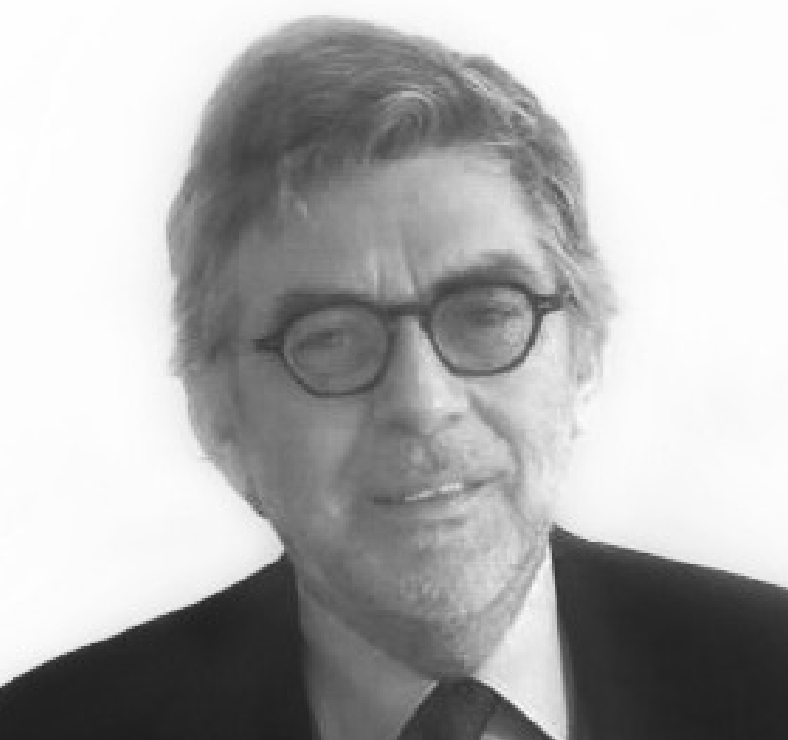
Ambrogio BrambillaStatutory Auditors
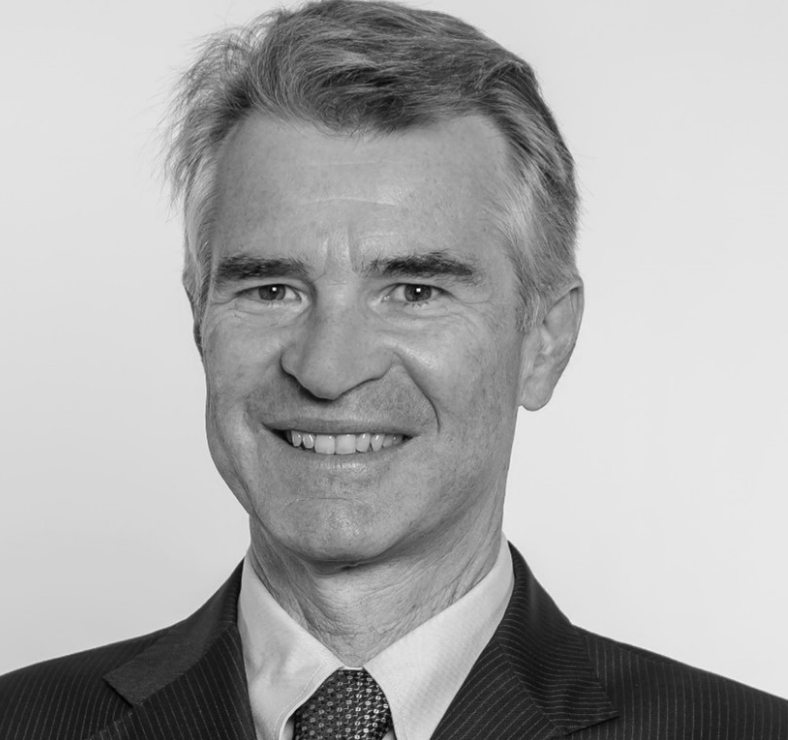
Lorenzo PozzaStatutory Auditors

Antonella Carù
Alternate Auditors
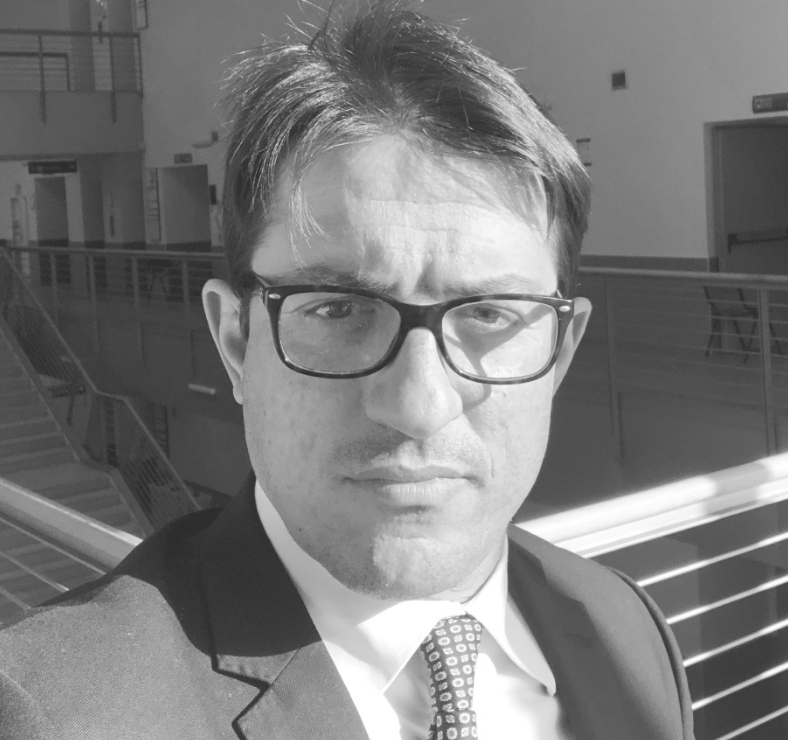
Carlo RegoliosiAlternate Auditors
Committee for conflict of interest and research integrity
The Committee, inspired by the principle of transparency and safeguarding the integrity of the institute, is aimed at identifying and managing situations of potential risk on these issues that might emerge among IFOM employees, collaborators, and IFOM affiliates in general.
In particular, the committee is tasked with monitoring and managing possible situations of conflict of interest at the financial level of all IFOM employees and to promote a culture of integrity in scientific research and to prevent phenomena of research misconduct that could damage the integrity and reputation of the Foundation and its scientists. The committee prepares guidelines, promotes training and communication activities in addition to checking any reports on the issue.
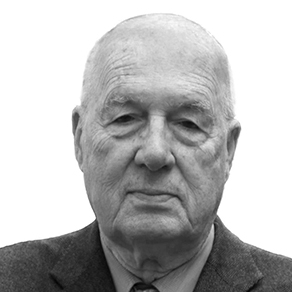
Claudio Maria Basilico
Chair

Alessandra Della PortaMembers
Scientific Advisory Board
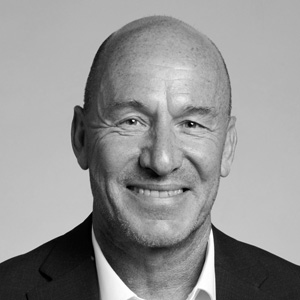
MemberKeith CALDECOTT
University of Sussex (UK)
Keith CALDECOTT
Keith Caldecott obtained his PhD on DNA double-break repair in the lab of Penny Jeggo at the National Institute for Medical Research in London, characterising the repair of chromosomal DNA damage induced by abortive topoisomerase activity. Keith continued his interest in DNA strand break repair in California as a postdoctoral fellow in the laboratory of Larry Thompson, identifying the heterodimeric complex XRCC1-DNA ligase III. Keith then moved to Tomas Lindahl’s laboratory in Clare Hall London, contributing to the cloning and characterisation of human DNA ligase III and DNA ligase IV. Keith then established his own laboratory in Manchester in 1995, funded partly by AstraZeneca, where he identified novel protein components of the human DNA single-strand break repair pathway. In 2002, Keith moved to the Genome Damage and Stability Centre in Sussex, where his group identified a novel DNA phosphodiesterase activity (TDP2) that removes trapped topoisomerase peptide from the 5’-termini of DNA breaks, and discovered that hereditary TDP2 mutations cause neurodegenerative disease. More recently, Keith’s laboratory has focussed on identifying and understanding the molecular basis of human genetic neurological diseases associated with defective DNA single-strand break repair. Keith is co-Director of the Genome Damage and Stability Centre at the University of Sussex in Brighton. Keith has been elected as a Fellow of EMBO, the Academy of Medical Sciences, and the Royal Society.
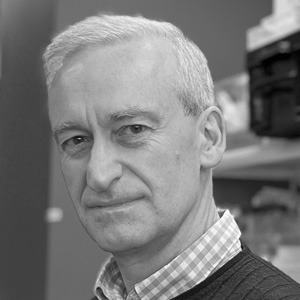
MemberJulian DOWNWARD
Crick Institute (UK)
Julian DOWNWARD
Julian Downward obtained his bachelor's degree in Natural Sciences from Cambridge University and then studied for his Ph.D. in the laboratory of Michael Waterfield at the Imperial Cancer Research Fund in London, where he established in 1984 the link between a retroviral oncogene (v-erbB) and a cellular growth regulatory protein, the EGF receptor.
In 1986, he moved to Robert Weinberg's laboratory at the Whitehead Institute at the Massachusetts Institute of Technology in Cambridge, MA, where he began work on the role of RAS proteins in human cancer.
In 1989 he started his own lab at the Imperial Cancer Research Fund, which became Cancer Research UK in 2002 and is now part of the Francis Crick Institute, where his lab has provided insights into the molecular mechanisms of function and regulation of oncogenic proteins of the RAS family and the importance of their mutational activation in human tumours.
In 2005 Julian was made a Fellow of the Royal Society, the UK's national academy of sciences, and he was Executive Chairman of the British Association for Cancer from 2016 to 2021.
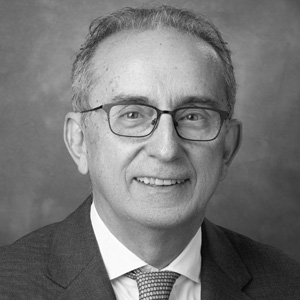
MemberGiulio DRAETTA
MD Anderson Cancer Center (US)
Giulio DRAETTA
Giulio Draetta is a physician scientist with long standing experience in cancer research and drug discovery in both academia and industry. Since his discovery of essential regulators of the human cell division cycle, he became interested in translating research into cures. His career in academia, included principal investigator positions at Cold Spring Harbor Laboratory, the European Molecular Biology Laboratory, the European Institute of Oncology, He co-founded several biotechnology companies and led global oncology research in large pharma, resulting in the identification of many clinical candidates and new drugs. Since 2012, Dr. Draetta has been at MD Anderson Cancer Center, where he currently serves as Senior Vice-President and Chief Scientific Officer. MD Anderson Cancer Center, located in Houston, Texas, the fourth-largest U.S. city and the most ethnically diverse, is a world-renowned institution dedicated to the fight against cancer. Here discovery science is combined with drug discovery and development, and translational and clinical research, with the aim of transforming cancer care from prevention to diagnosis to treatment.
At MD Anderson, Dr. Draetta is also the Sewell Family Distinguished University Chair, and his laboratory focuses on targeting critical vulnerabilities in pancreatic cancer and glioblastoma. His laboratory combines classical genetics and biochemical analyses with functional genomics and state-of-the-art single cell analysis to identify novel tumor dependencies and evaluate their potential for therapeutic translation. Focus areas include tumor heterogeneity, oncogenic reprograming of metabolic pathways, and mechanisms of disease adaptation and evolution. Over the years the group’s findings have provided the biological rationale for positioning novel therapeutic strategies, including identifying actionable vulnerabilities in cancer metabolism and elucidating resistance mechanisms, as in the case of mutant K-Ras (Nature, 2014, 2017, 2019; Nature Medicine, 2018; Nature Communications 2019, 2021, 2023) that have resulted in novel drug discovery projects. Most recently the group identified a therapeutically exploitable dependency of glioblastoma on mitochondrial fatty acid metabolism (Cancer Discovery, 2021), the enzyme medium-chain acyl-CoA de-hydrogenase (MCAD), Inhibiting MCAD causes the accumulation of unmetabolized toxic fatty acids, triggering a cascade of effects that induce irreversible mitochondrial damage and, eventually, glioma cell death, while not affecting neural stem cells or astrocytes.
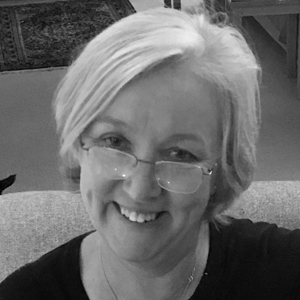
MemberGillian GRIFFITHS
University of Cambridge (UK)
Gillian GRIFFITHS
Professor Gillian Griffiths obtained her PhD at the MRC Laboratory of Molecular Biology with Cesar Milstein. After a post-doctoral fellowship at Stanford University, she started her own research laboratory at the Basel Institute for Immunology in Switzerland in 1990. She subsequently held posts at University College London, the Dunn School of Pathology, Oxford (1997-2007) before moving to the Cambridge Institute for Medical Research where she was Director 2102-2017. She was elected as a Fellow of the Academy of Medical Sciences (2005); EMBO (2006), and the Royal Society (2013).
Her research is focused at the interface between cell biology and immunology aimed at understanding the mechanisms controlling polarised secretion from cytotoxic T lymphocytes (CTLs), the killer cells of the immune system which destroy virally infected and cancer cells. Bringing together clinical and basic biomedical research, she pioneered the use of CTLs from patients with genetic disorders to study cell biology in a specialized cell type in order to identify many of the molecular mechanisms controlling secretion.
She was awarded the Royal Society Buchanan medal (2019) in recognition of her ground-breaking research establishing the fundamental cell biological mechanisms that drive CTL killing, laying the foundations for the development of targeted cancer immunotherapy
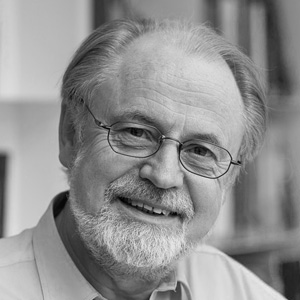
MemberJan HOEIJMAKERS
Erasmus MC (NL)
Jan HOEIJMAKERS
Research of Jan Hoeijmakers focuses on DNA repair and the impact of nutrition on cancer and aging in mammals. His team made major contributions to cloning human repair genes, elucidating underlying repair mechanisms, and generating numerous mouse mutants, which closely mimic rare human repair syndromes. He discovered that time- and exposure-dependent accumulating DNA damage as a major cause of replication stress, mutations and cancer, also induces transcription stress, which lowers and imbalances transcriptional output in a gene-length-dependent manner in most organs and tissues, causing systemic aging and multimorbidity. Intriguingly, this novel evolutionary conserved process of transcription stress, as a primary cause of aging, at the same time triggers a potent anti-cancer, anti-aging ‘survival’ response, by suppressing the IGF-1 somatotrophic axis, which resembles calorie restriction (CR). Applying 30% CR to mouse repair mutants was found to dramatically delay their accelerated aging by reducing DNA damage, explaining the anti-aging, anti-cancer mechanism of CR. Translation of these findings to progeroid DNA repair patients even surpassed the enormous benefits observed in mice, spectacularly improving neurofunction and overall condition, extending life expectancy and leading to a total revision of global nutritional guidelines for these syndromes. The clinical implications of nutritional interventions extend to many other important medical areas, including counteracting neurodegeneration, short- and long-term side effects of chemo/radiotherapy, and surgery-related ischemia reperfusion injury. Currently, research on the underlying molecular mechanisms is combined with clinical trials on the protective effect of short-term fasting as nutritional preconditioning for (oncological) surgery and chemotherapy, improving quality of life of (ex)cancer patients. Jan Hoeijmakers heads research teams in the Erasmus Medical Center (Rotterdam), Princess Máxima Center for Pediatric Oncology (Utrecht, both in the Netherlands), and CECAD (Cologne, Germany). For his scientific achievements he has obtained numerous (inter)national awards and distinctions.
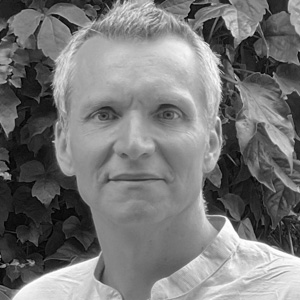
MemberBenoit LADOUX
CNRS (FR)
Benoit LADOUX
Ladoux’s research work lies at the interface between biophysics, cellular and molecular biology and engineering in the field of mechanobiology. By proposing new concepts at the interface of physics and biology, he has carried out some pioneering research in cell mechanics. His research is based on physical measurements, molecular perturbations and theoretical modelling of physics concepts for biology. Starting as an assistant professor in physics in 2001, I developed multidisciplinary research on cell adhesion and cell mechanics. The first projects led me to establish national and international collaborations, in particular with Prof. Sheetz, a pioneer in mechanobiology. From 2008, he helped set up the Mechanobiology Centre at the National University of Singapore (NUS). He then carried out a large part of his research in this centre, first as PI and then as co-PI (2010-2018). During this period, he divided his time between France and Singapore, deciding to join a Biology Institute to realise his ambition of combining innovative technology and physical modelling with high-level research in cell biology and microscopy. He obtained a full professorship position in the Physics Department of Paris Diderot University in 2010. In 2013, he thus joined the Institut Jacques Monod (Université Paris Cité and CNRS) as group leader, co-leading a team with Dr R.-M. Mège. In 2015, he moved from a faculty position to the CNRS as a research director. He is interested in how physics contributes to the mechanisms of cell and developmental biology, with a particular focus on cell mechanics, self-organisation mechanisms and active matter. His overall aim is to discover how the coordinated regulation of cell adhesion and cytoskeletal dynamics contributes to the mechanics of cells and tissues, and how the adaptation of cells to physical changes in their environment emerges at different scales, from single molecules to tissues. He was a member of the Institut Universitaire de France (2011-2015), received the Pierre-Gilles de Gennes Award (2014) and became EMBO member (2022). His well-recognized research led him to be recognized as the ERC winner for the third time in his career (ERC advanced 2021) to study the role of cell extrusion. Benoit Ladoux published over 95 peer-reviewed, 17 reviews and delivered over 60 international invited lectures. He coordinated multiple research programs including ERCs, Human Frontier Science Program, ANRs, Ligue contre le Cancer, USPC-NUS program.
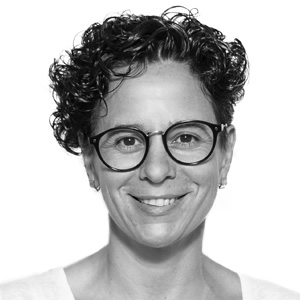
MemberNuria LOPEZ BIGAS
Institute for Research in Biomedicine (IRB Barcelona) (ES)
Nuria LOPEZ BIGAS
Nuria Lopez-Bigas is an ICREA Research Professor at the Institute for Research in Biomedicine in Barcelona. She is interested in the identification of cancer driver mutations, genes and pathways across tumor types and in understanding the mutational processes leading to the accumulation of mutations in cancer cells. Her lab (http://bbglab.irbbarcelona.org) combines strong expertise in biology and bioinformatics. They are the developers of IntOGen.org, a compendium of cancer genes across cancer types, and of CGI (cancergenomeinterpreter.org), a tool to annotate cancer driver mutations and biomarkers of drug response in individual tumors.
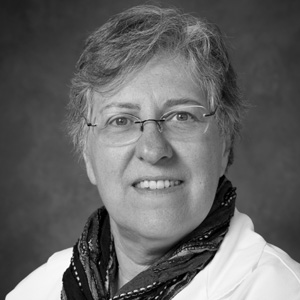
MemberPatricia LORUSSO
Yale School of Medicine (US)
Patricia LO RUSSO
Dr. Patricia LoRusso has been a practicing academic medical oncologist performing clinical/translational research in early phase clinical trials for 30 years, spending the first 25 years at Wayne State University/Karmanos Cancer Institute in Detroit, MI and transitioning to Yale University/Yale Cancer Center in 2014. Both institutions have NCI comprehensive designation status. She has had continuous NIH/NCI peer review funding for 28 years, having held a U-grant for early phase clinical trials through the NCI Cancer Therapy Evaluation Program (CTEP) for 26 years. She has also collaborated on numerous other grants and have been an investigator in P01 and P30 funding mechanisms. Understanding the need for team science, she has participated in P50 mechanisms and has been awarded team science grants through such organizations as Stand Up to Cancer (Co-Leader: Melanoma Dream Team), the Department of Defense (DOD) and the Komen Foundation (Co-leader, KG111063:Targeting Stem Cells in Triple-Negative Breast Cancer (TNBC) in Different Racial Populations).
Dr. LoRusso has also been involved in many service disciplines at the NCI. She has reviewed grants for many study sections and has either been an ad hoc (e.g. CCSG, NeXT study sections) or permanent study section member (e.g. Program Project Subcommittee D and Clinical Oncology study sections). She has served on the Investigational Drug Steering Committee (IDSC) since inception (2005-present) and served as its chair from 2011-2013. She was a member of the steering committee that convened after the Blue- Ribbon Panel to execute on their recommendations. She served a 4-year term (2015-2019) on the Board of Scientific Council (BSC), reviewing the intramural programs for quality, content, productivity and funding.
In addition to serving in NCI positions, Dr. LoRusso has served in leadership positions of several other organizations. She has served on the Board of Directors and numerous scientific and education committees of the American Association for Cancer Research (AACR), the education and scientific committees of the American Society of Clinical Oncology (ASCO), and the steering committee for the Food and Drug Administration (FDA) Accelerating Anticancer Agent Development and Validation Workshop, as examples. Internationally, she has taught several clinical trials educational workshops, educating many physicians and scientists across the globe. She understands how critically important it is to train the next generation of early career investigators to be knowledgeable and proficient in clinical and translational research by providing them leadership opportunities and mentoring. She has worked closely with Cancer Research United Kingdom (CRUK), a UK Welcome Trust which is the second largest funding agency for cancer research. She is currently serving a 3-year term as the chair of their New Agents Committee (NAC), reviewing international proposals relative to drug development of novel agents.
Working closely over the past 3 decades with patients suffering from advanced malignancies, Dr. LoRusso has become an advocate, not only for cancer researchers and clinicians, but more importantly for the patients and their caregivers. Having experienced at a young age the death of her own parents from cancer, she understands the urgent need for new cancer discoveries and the potential for longevity and quality of life.
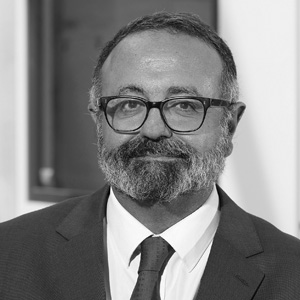
MemberManuel SALTO-TELLEZ
The Institute of Cancer Research (ICR) (UK)
Manuel SALTO-TELLEZ
Professor Manuel Salto-Tellez (MD-LMS, FRCPath, FRCPI) is the Professor on Integrative Pathology at the Institute for Cancer Research in London (ICR), and the lead of the Royal Marsden Hospital / ICR Integrated Pathology Unit. He is also the Chair of Molecular Pathology at Queen’s University Belfast (QUB), a clinical consultant pathologist and the Lead of QUB’s Precision Medicine Centre of Excellence.
Manuel studied Medicine in Spain (Oviedo), Germany (Aachen) and The Netherlands (Leiden). He specialized in Histopathology in the UK (Edinburgh and London) and in Molecular Pathology in USA (Philadelphia). For more than 10 years he worked at the National University of Singapore and its National University Hospital, where he was associate professor, senior consultant, director of the Diagnostic Molecular Oncology Centre, Vice-dean for Research and senior scientist at the Cancer Research Institute.
Prof Salto-Tellez is author or co-author of more than 310 internationally peer-reviewed articles in translational science, molecular pathology and diagnostics, has published a similar number of abstracts in international conferences, and is editor or contributor to some of the key textbooks of pathology and oncology. Manuel holds more than £21M in competitive grant funding. He is scientific advisor to 2 companies in the digital pathology and artificial intelligence space.
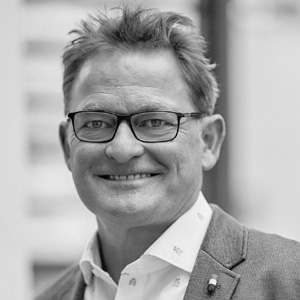
MemberAndreas TRUMPP
HI-STEM (DE)
Andreas TRUMPP
Andreas Trumpp is the Managing Director of the Heidelberg Institute for Stem Cell Technology and Experimental medicine (HI-STEM GmbH, non-profit) and the Head of the Division of “Stem Cells and Cancer” at the German Cancer Research Center (DKFZ), Heidelberg (Germany). He is also a Co-Founder, Past President, Board member of the German Stem Cell Network (GSCN e.V.) since 2013 and a Board Member of the European Association of Cancer Research (EACR) since 2018. Andreas Trumpp received his PhD from the EMBL, Heidelberg. His group explores the principles of normal and malignant stem cell function as well mechanisms of therapy resistance at the molecular, genomic, metabolic and single cell level. His group also uses liquid biopsies in combination with single cell analysis and organoids to analyze breast cancer patients in a longitudinal manner to identify and overcome resistance mechanisms within a personalized and precision oncology program. Advanced mouse PDX models in combination with patient samples and multidimensional analytical and functional technologies are used to fill the research pipeline from mechanistic understanding to translation into innovative strategies with the aim to target therapy-resistant AML and pancreatic cancer cells in clinical settings.
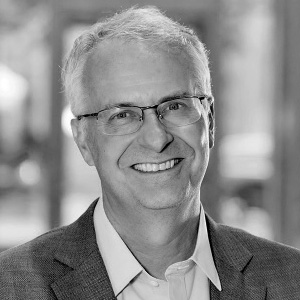
MemberMatthew VANDER HEIDEN
Koch Institute (US)
Matthew VANDER HEIDEN
Matthew Vander Heiden is the Director of the Koch Institute for Integrative Cancer Research and a Professor in the Department of Biology at the Massachusetts Institute of Technology. He is also an Institute Member of the Broad Institute of Harvard and MIT, and an Instructor of Medicine at the Dana-Farber Cancer Institute and Harvard Medical School. Dr. Vander Heiden received his MD and PhD degree from the University of Chicago. He also completed clinical training in Internal Medicine and Medical Oncology at the Brigham and Women’s Hospital / Dana-Farber Cancer Institute prior to completing a post-doctoral fellowship at Harvard Medical School. His laboratory studies how metabolism is regulated to meet the needs of cells in different physiological situations with a focus on understanding the role of metabolism in cancer.
Statute
Download pdf 









